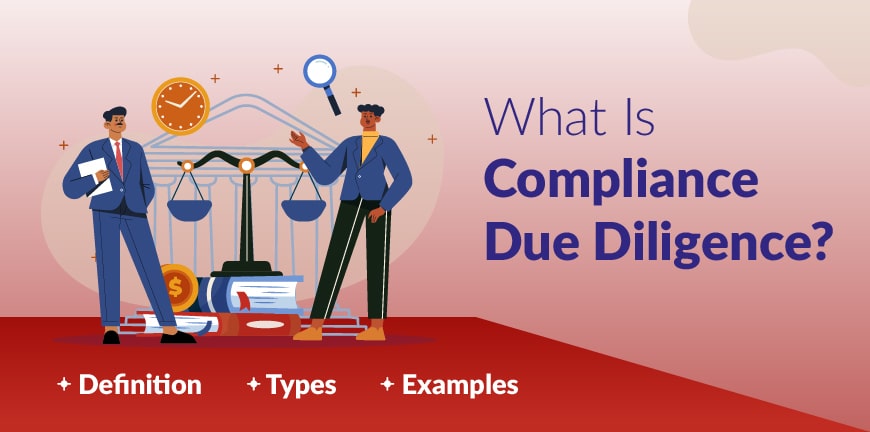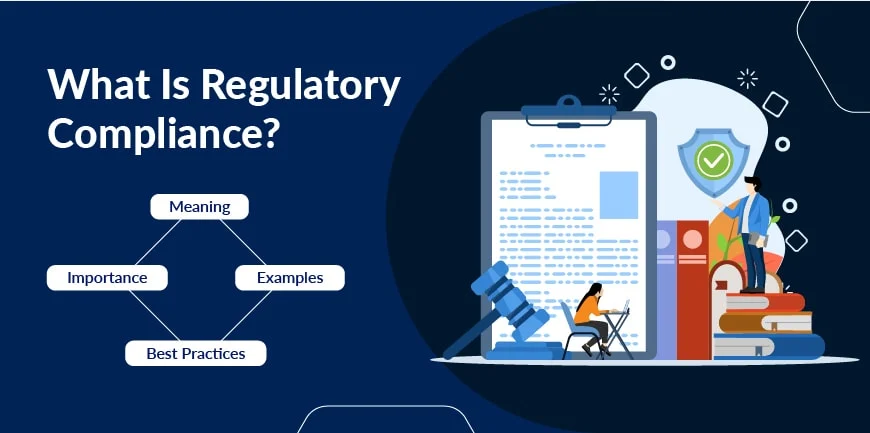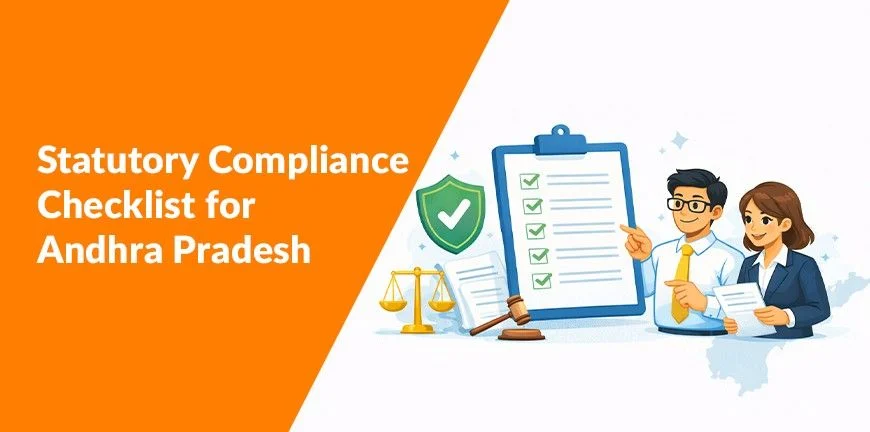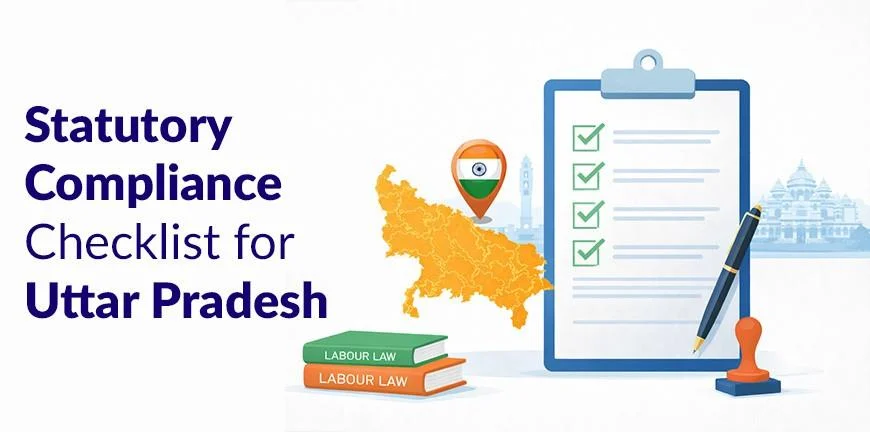
Types & Stages of the Interview Process – Explained
08/04/2025
How Companies are Leveraging AI and NLP for Smart Recruitment?
08/04/2025- What is Compliance Due Diligence?
- What are the Types of Compliance Due Diligence?
- What are the Examples of Compliance Due Diligence?
- What is Compliance Due Diligence Process?
- What are the Benefits of Compliance Due Diligence?
- What are the Key Challenges in Compliance Due Diligence?
- What are the Best Practices for Effective Compliance Due Diligence?
- Frequently Asked Questions
Compliance due diligence acts as a foundation for effective risk management and informed decision-making in business. Whether you are planning a business expansion or ensuring the company is compliant with regulatory laws and standards, due diligence plays a pivotal role in identifying and mitigating potential risks. By mastering due diligence compliance, companies can achieve positive outcomes in terms of decision-making and preventing legal complications. Let us get a deep understanding of compliance due diligence definition, types, examples, processes, benefits, and much more.
What is Compliance Due Diligence?
Compliance due diligence definition states that ” It is a standardised process that involves audit or analysis of assessing a company’s compliance with applicable laws and regulations”. The primary objective of compliance due diligence is to identify and mitigate risks associated with non-compliance that can lead to legal complications, penalties, and brand value depreciation.
The key areas of compliance due diligence include:
Regulatory and Legal Compliance
- Labour and tax laws
- Anti-corruption laws
- Employee safety regulations
- Environmental laws
- Antitrust laws
- Product safety regulations
Third-Party Risk Management
- Partner Due Diligence
- Supplier Due Diligence
Other Areas
- Data Security
- Documentation and Reporting
- Financial Due Diligence
- Litigation and Legal Risk
- Legal Structure and Governance
Compliance due diligence is a proactive approach that every company must include as a part of best practices to demonstrate the company’s commitment towards ethical and responsible business conduct. Compliance due diligence can be done in-house, but it is always advised to partner with a top compliance services agency like Alp Consulting for the best outcomes.
What are the Types of Compliance Due Diligence?
Based on the type of organisation and compliance requirements, an internal or external audit team can undertake the following 9 types of due diligence and regulatory compliance.
- Regulatory due diligence: It involves a thorough review of a company’s policies, documentation, and operations and ensures it is compliant with the regulations and laws imposed by government agencies.
- Financial due diligence: Reviewing and analysing a company’s financial performance and documentation either for improvements or before going ahead with a merger or an acquisition.
- ESG due diligence: It helps in the evaluation of a company’s impact on environmental, social and governance issues and creates mitigation strategies for better ESG compliance.
- Vendor due diligence: Investigate the potential risks associated with existing and new vendors and develop strategies to resolve issues for best outcomes.
- Technology due diligence: Audit a company’s IT infrastructure and mitigate non-compliance risks.
- Third party due diligence compliance: Review the performance of third-party agencies and ensure their compliance with the requirements.
- Supply chain due diligence: Assess the impact of the entire supply chain of a company and ensure human rights and environmental risks are eliminated.
- Cyber due diligence: It evaluates, monitors, and mitigates associated with networks especially that of third-party vendors.
- Enhanced due diligence: It makes use of a risk-based approach to assess specific companies or clients.
What are the Examples of Compliance Due Diligence?
Compliance due diligencehas a wide reach, especially for large-cap global companies with spread-out value chains. Here are some examples that demonstrate the due diligence compliance landscape.
1. Deployment of a project management software
A global marketing agency is planning to deploy a fully equipped project management software. The due diligence in this case involves checking prices, reviewing the testimonials of companies that already use this software, and the security and compatibility of the software with the agency’s current infrastructure. If everything turns out in favour of the software, then the agency will purchase the software and related maintenance services and start using it for better project management.
2. A big company acquiring a small competitor company
Suppose a big company is planning to acquire a smaller company which is its direct competitor, then before the acquisition, a current compliance check must be done. The due diligence here may involve verifying the current employment agreements, labour issues, compensation structure, and other factors against anti-bribery and corruption laws. Once if the company is found as compliant, then a green signal will be issued for proceeding with the acquisition.
3. Collaboration with a third-party technology provider
Suppose a global HR services company such as ALP Consulting is planning to partner with a third-party technology provider for digital onboarding and background verification. In such a scenario, cyber due diligence is conducted to ensure the cybersecurity infrastructure of the third-party technology provider is compliant with the regulations and there are zero chances of data theft and other security issues.
What is Compliance Due Diligence Process?
The process of in-house or third-party due diligence compliance depends on the type of due diligence required. Financial due diligence may include steps that are different from cybersecurity due diligence. However, most forms of due diligence compliance have common steps. To conduct due diligence effectively, we must:
1. Gather complete information
This is the first step, and it involves gathering complete data related to the target area where due diligence compliance is required. The collected data must be accurate in order to identify and mitigate potential risks.
2. Identification and assessment of risks
Here we must assess and identify potential risks of non-compliance. Then categorise these risks based on severity and the urgency of mitigation. Once the categories are finalised, the company can dedicate resources to mitigate the risks on priority leading to 100% compliance.
3. Validation and Reporting
Through cross-referencing and audit, the accuracy of the collected information can be validated. A detailed report consisting of the findings and recommendations will the organisation to get a clear understanding of the current standing with compliance requirements and devise mitigation strategies.
4. Continuous oversight
Due diligence does not end with a one-time review. Organisations must maintain continuous oversight to address and modify the processes according to the changing regulations and market dynamics.
What are the Benefits of Compliance Due Diligence?
1. Minimise Risks
If we follow the compliance due diligence checklist properly, then mitigating risks will become a lot easier. During a comprehensive due diligence audit, we can identify potential risks and create mitigation strategies proactively. This will help companies minimise risks and make informed decisions to achieve the best outcomes.
2. Enhances trust and confidence
By conducting due diligence on key business areas, a company can gain a unique perspective on its business creating a culture of trust and confidence. By performing due diligence on all key business areas, an organisation can demonstrate their commitment to the well-being of its stakeholders and employees leading to more investment and further business expansion.
3. Encourages better decision-making
Through due diligence, the organisation will be exposed to a wealth of information in key business areas encouraging better decision-making. Once you go through all the data and make a thorough analysis, risks and vulnerable areas can be identified and resources can be allocated accordingly to overcome the roadblocks and achieve better results.
4. Business Competition and Industry
While conducting a compliance due diligence audit, organisations can identify competitors and business opportunities such as acquisition and collaboration. Additionally, the good and bad practices of competitors can help you improve processes and operations which can lead to more productivity and higher operational efficiency.
What are the Key Challenges in Compliance Due Diligence?
Here are key challenges faced by companies while conducting compliance due diligence include:
1. Not asking the right questions
Before starting the process of due diligence compliance, companies must prepare the right set of questions to answer so that the audit can be useful and provide actionable outcomes. Generally, most companies fail to ask the right questions creating complications and wastage of resources leading to compliance issues and wrong decisions.
2. Inadequate technology
Most due diligence teams are using spreadsheets and email updates to carry the compliance audits which can create delays and confusion. Implementation of automated data collection and reporting systems can make the process swifter and can yield accurate outcomes.
3. High chances of miscommunication
Usually, different teams conduct different compliance due diligence according to the business areas. But, to get a clear understanding, all the findings must be gathered, and a comprehensive report must be generated to create an action plan. Lack of communication among different diligence teams is a major hurdle that can create compliance issues that might lead to dire consequences. To avoid such issues, it is always better to opt for a third-party due diligence compliance agency like ALP Consulting which can take care of the entire due diligence audit and offer the best solutions.
4. Lack of Expertise
Typically, compliance due diligence is done by an in-house team that can be short-handed since they have to carry out other activities along with due diligence leading to more stress and less accurate outcomes. Also, most due diligence team members will have a lack of expertise in certain areas leading to gaps and incomplete information. This can lead to compliance fail making the due diligence efforts go in vain as informed decisions cannot be made based on inaccurate and incomplete audit reports.
What are the Best Practices for Effective Compliance Due Diligence?
For companies whether startups or Fortune 500, compliance due diligence plays a massive role in achieving the best outcomes in terms of compliance and business growth. The best practices for carrying out effective due diligence compliance include:
- Detailed planning: Create a detailed due diligence plan and set a clear scope and objective for a successful due diligence audit.
- Systematic data collection: Collect all the necessary and relevant data without fail.
- Create a due diligence team with cross-functional expertise: Form a team of experts with in-depth knowledge and experience in finance, law, operations and documentation.
- Comprehensive reporting: Create a comprehensive report consisting of all the findings and recommendations and share the same with the internal stakeholders and management.
- Regular monitoring: Set up regular monitoring to ensure due diligence compliance is maintained throughout the year irrespective of changes in regulations and processes.
Frequently Asked Questions
1. What is compliance due diligence?
Compliance due diligence is a structured process of evaluating and improving a company’s processes, operations, and documentation against the regulations and laws set up by government agencies. It can be done in-house or by a third party due diligence compliance agency like Alp Consulting.
2. Why is compliance due diligence important?
Compliance due diligence is critical for companies as it helps them identify and mitigate weak compliance areas and potential risks creating better outcomes and preventing legal complications.
3. How does compliance due diligence work?
The compliance due diligence process involves gathering complete information, identification and assessment of risks, validation and reporting, and continuous oversight. All these steps must be carried out by an in-house expert team to identify and mitigate potential risks and achieve 100% compliance.
4. What challenges are faced during compliance due diligence?
The challenges encountered during the compliance due diligence process include a lack of expertise, inadequate technology, high chances of miscommunication, not asking the right set of questions, etc.
5. What tools can be used for compliance due diligence?
To carry out effective compliance due diligence, we can leverage tools such as compliance due diligence checklist, GRC (Governance, Risk, and Compliance) Software, AI-powered solutions, virtual data rooms, etc.
6. What industries require compliance due diligence the most?
Industries that are involved in high-risk transactions, stringent regulations, and potential fraud require mandatory compliance due diligence. Some of the industries that come under this category include health care, real estate, BFSI, aerospace, defence, etc.
7. Why is third-party compliance due diligence important?
Third-party compliance due diligence offers more expertise when compared to the in-house team. A third-party due diligence compliance agency like Alp Consulting will be providing a unique perspective since they operate independently and objectively. They help in identifying and mitigating compliance issues at a faster rate allowing companies to make informed decisions and achieve best outcomes.
Contact Us For Business Enquiry

Hariharan Iyer
Hariharan Iyer is the Vice President – Operations at ALP Consulting, bringing over 40+ years of experience in HR outsourcing and labour law compliance. He leads end-to-end HRO operations, ensuring process efficiency, statutory compliance, and seamless service delivery for clients across industries. With a strong background in labour law governance and workforce management, Hariharan plays a key role in driving operational excellence and compliance-led HR solutions at ALP Consulting.




